Description
What Is Seleno-Methionine?
Seleno-methionine is a natural amino acid that contains both sulfur and a bioavailable form of selenium, a trace element needed to ensure the thyroid gland functions properly. Natural selenium is found in several different foods, such as whole grains, nuts, meats, dairy, and eggs, but often in insignificant amounts.
As a supplement, seleno-methionine comes together with proteins produced by the body to create antioxidants known as selenoproteins. These can be used by the body to protect against free radicals, unstable molecules that can potentially damage cells in the body. Selenium is also necessary for making some kinds of prostaglandins, which support healthy blood flow. Taking selenium can also aid in immune health, preventing certain illnesses and diseases.
How Seleno-Methionine Can Be Used
Seleno-methionine can be used to address and prevent symptoms of many illnesses and diseases, such as thyroid disease and heart disease. It may even be successful in treating some mental health conditions and may stop cognitive problems from developing.
Thyroid Disease
Selenium is a mineral that exists naturally in the body, and its primary source is the thyroid gland. Selenium plays a part in how thyroid hormone is produced and affects thyroid metabolism. For these reasons, seleno-methionine has been used to treat thyroid disease.
One particular study demonstrated that those with hypothyroidism who took this nutrient showed major improvement in thyroid function compared to those who had only been given a placebo.
Another study looked at how seleno-methionine helped pregnant women with thyroiditis. To determine whether it helped treat the illness, 45 women were given seleno-methionine, while the other group was given a placebo. They were first assessed at ten weeks along in the pregnancy, then again at 36 weeks, and one last time six months after giving birth. Selenium blood levels peaked at about 36 weeks, and after giving birth, it was discovered that the amount of autoantibodies in the women who took the seleno-methionine had lessened, indicating a reduction in thyroiditis.
Heart Disease
Measurements of blood selenium suggest that people with selenium deficiencies appear more likely to experience heart disease and stroke. However, it is unclear whether selenium alone is the sole reason for this decrease in risk or if other components, such as diet or other supplements, affect it as well.
Research is still ongoing to develop a stronger understanding of the correlation between this nutrient and heart disease. Taking seleno-methionine is an effective way to increase the body’s selenium level, and bioavailable supplements like seleno-methionine are more readily accessed by body systems than other supplement forms of selenium. Additional clinical trials will help to provide more understanding of the heart disease connection.
Cognitive Function
As a person ages, the selenium levels within the body decrease. This may be one reason cognitive functions decline as an individual ages, as the selenium’s antioxidant activity decreases as well. More studies are needed to demonstrate the effectiveness of selenium in improving or preventing cognitive decline, but eliminating a risk factor for cognitive decline is an important way to do what you can to protect your cognitive health.
Ulcerative Colitis
Ulcerative colitis is a disease that involves inflammation of the bowels. It typically affects the large colon and can be very uncomfortable, especially as it progresses. It often causes deficiencies in the body’s nutrients as well.
One study has demonstrated that taking seleno-methionine each day for a certain amount of time helped to relieve symptoms. Patients experienced reduced inflammation, reduced pain, and a better quality of life.
Benefits of Taking Seleno-Methionine
As mentioned above, selenium is often used to treat thyroid issues and promote healthy thyroid function. The thyroid is essential to the metabolic process as it creates the hormones that manage metabolism. When the thyroid does not function as it should, it may be due to an underactive thyroid, which causes a loss of energy, an increase in weight, achy muscles, and depression. Selenium supplementation may help boost an underactive thyroid.
Seleno-methionine may also help prevent certain cognitive diseases and nervous system issues such as Alzheimer’s disease, multiple sclerosis, and Parkinson’s disease. It may also assist in helping to retain healthy mental functions, although further studies are necessary to prove the benefits of taking selenium to improve cognitive performance.
Other benefits of supplementing with seleno-methionine include promoting a healthy heart, as it can help handle blood clots. This supplement can also help support a healthy immune system, boosting white blood cell counts and fighting disease. Selenium may also help control cholesterol levels.
Seleno-Methionine FAQs
Below are a few answers to frequently asked questions about seleno-methionine:
Shop for Seleno-Methionine and Your Other Supplement Needs
Beginning your health and wellness journey is the first step to improving your overall health. You can buy seleno-methionine right here in our health and wellness shoppe. For additional product information or to discuss your health goals, contact Compounding Pharmacy of America.
Sources:
-
- What Is Selenomethionine? (n.d.). Verywell Health. https://www.verywellhealth.com/selenomethionine-5084928
- Pirola, I., Gandossi, E., Agosti, B., Delbarba, A., & Cappelli, C. (2016). Selenium supplementation could restore euthyroidism in subclinical hypothyroid patients with autoimmune thyroiditis. Endokrynologia Polska, 67(6), 567–571. https://doi.org/10.5603/EP.2016.0064
- Mantovani, G., Isidori, A. M., Moretti, C., Di Dato, C., Greco, E., Ciolli, P., Bonomi, M., Petrone, L., Fumarola, A., Campagna, G., Vannucchi, G., Di Sante, S., Pozza, C., Faggiano, A., Lenzi, A., & Giannetta, E. (2019). Selenium supplementation in the management of thyroid autoimmunity during pregnancy: results of the “SERENA study”, a randomized, double-blind, placebo-controlled trial. Endocrine, 66(3), 542–550. https://doi.org/10.1007/s12020-019-01958-1
- US), M. (2022). Selenium. Nih.gov; National Academies Press (US). https://www.ncbi.nlm.nih.gov/books/NBK225470/
- Office of Dietary Supplements – Selenium. (n.d.). Ods.od.nih.gov. https://ods.od.nih.gov/factsheets/Selenium-HealthProfessional/#en13
* Douglas Laboratories’ logo, text, graphics, and photo images are the property of HVL LLC dba Douglas Laboratories and are used with permission. Copyright © 2024.

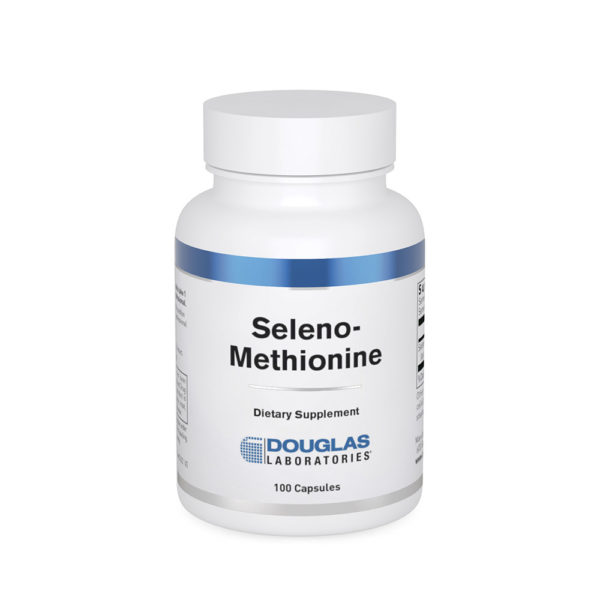
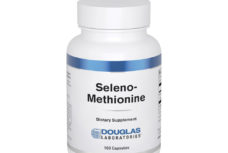
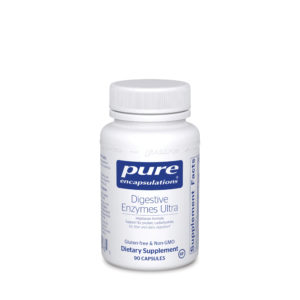

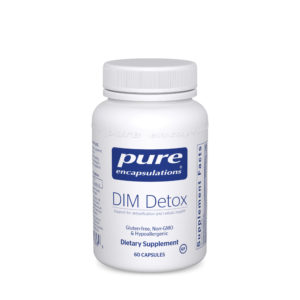
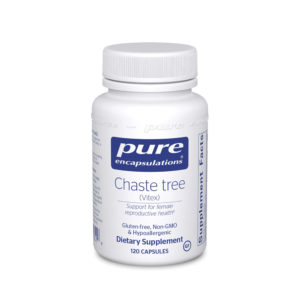

 Subscribe to Our Newsletter
Subscribe to Our Newsletter


